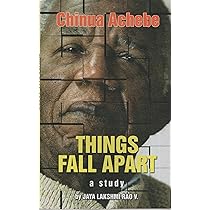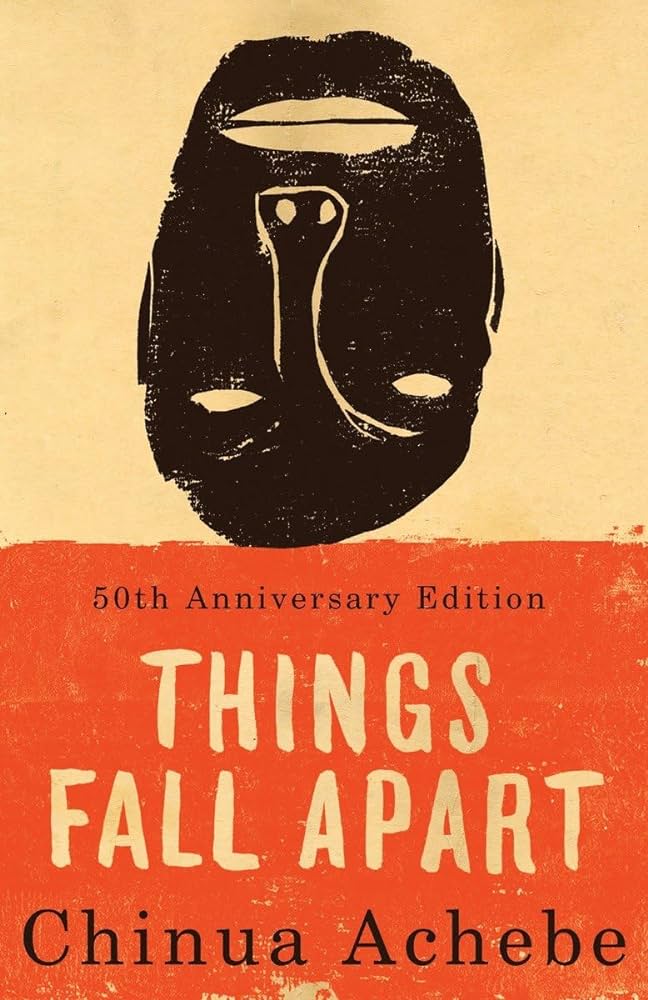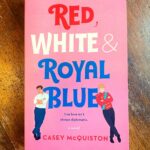Things Fall Apart is a famous novel written by Chinua Achebe published in 1958. It is set in Nigeria and tells the story of Okonkwo, a respected leader and warrior in the Igbo community as his world begins to change. The novel is a classic of African literature and is known for its exploration of African traditions, colonialism and the clash between traditional and modern ways of life. You will get the Things Fall Apart summary pdf free download here.

About Author
Chinua Achebe was a Nigerian writer and professor, born in 1930 and he is considered one of the most important African authors of the 20th century. Achebe is known for his powerful storytelling, which sheds light on African history and culture. He wanted to correct misunderstandings about Africa that had been spread through Western literature. Things Fall Apart is his most well-known book and it has been translated into many languages and studied worldwide.
Here I will discuss all things fall apart sparknotes:
Table of Contents
| Chapter Number | Chapter Title/Theme | Summary of Content |
| 1 | Introduction to Okonkwo | Introduces Okonkwo’s background and the village of Umuofia. |
| 2 | Conflict with Neighboring Villages | Okonkwo’s village demands justice from a neighboring village. |
| 3 | Okonkwo’s Family Life | Shows Okonkwo’s relationship with his family, particularly his father. |
| 4 | Okonkwo’s Struggle with Weakness | Highlights Okonkwo’s fear of weakness and failure. |
| 5 | The Feast of the New Yam | Describes traditional Igbo celebrations. |
| 6 | Okonkwo’s Outbursts | Okonkwo’s temper affects his family relationships. |
| 7 | Ikemefuna’s Fate | Okonkwo makes a tough decision regarding his adopted son, Ikemefuna. |
| 8 | Okonkwo’s Guilt | Okonkwo feels deep guilt for his actions. |
| 9 | Changes in the Village | Arrival of white missionaries starts causing changes in the village. |
| 10 | Christian Converts | More villagers begin to convert to Christianity. |
| 11 | Tensions Rise | Tensions between the villagers and missionaries continue to grow. |
| 12 | Okonkwo’s Exile | Okonkwo is forced to leave the village due to an accidental crime. |
| 13 | Life in Exile | Describes Okonkwo’s life in his motherland, Mbanta. |
| 14 | Return to Umuofia | Okonkwo returns after seven years of exile. |
| 15 | Conflict with Colonizers | Conflict grows as the colonizers gain more power in the village. |
| 16 | Okonkwo’s Final Struggle | Okonkwo’s inability to adapt to the changes leads to his downfall. |
| 17 | The Tragic Ending | Okonkwo’s tragic end and the impact of colonization on the village. |
Things Fall Apart Characters
Main Characters
- Okonkwo
- Role: The protagonist.
- Traits: Brave, hardworking, proud, and traditional.
- Description: Okonkwo is a respected leader and warrior in the Igbo village of Umuofia. He is known for his physical strength and his dedication to his family and the traditions of his people. However, he has a quick temper and a strong fear of being seen as weak which often leads him to make harsh decisions.
- Unoka
- Role: Okonkwo’s father.
- Traits: Gentle, easygoing, and irresponsible.
- Description: Unlike his son, Unoka is a peaceful man who loves music but struggles with financial responsibilities and is considered a failure by the village. His lack of success and reputation as lazy greatly affects Okonkwo’s personality, making Okonkwo determined not to end up like his father.
- Nwoye
- Role: Okonkwo’s eldest son.
- Traits: Sensitive, kind, and conflicted.
- Description: Nwoye does not live up to Okonkwo’s expectations of masculinity and toughness. He is more sensitive and eventually finds comfort in Christianity, which creates a rift between him and his father, who sees his choice as a betrayal.
- Ikemefuna
- Role: A boy given to Umuofia as a peace offering from a neighboring village.
- Traits: Friendly, respectful, and responsible.
- Description: Ikemefuna is taken in by Okonkwo’s family and forms a close bond with Nwoye, becoming like a son to Okonkwo. Tragically, he is killed on the orders of the village elders, a decision that deeply affects Nwoye and Okonkwo.
- Ekwefi
- Role: Okonkwo’s second wife and the mother of Ezinma.
- Traits: Strong, loving, and protective.
- Description: Ekwefi has suffered the loss of many children and is devoted to her only surviving child, Ezinma. Her close relationship with Ezinma is one of the story’s most tender elements, showing a different, more caring side of the family dynamics.
- Ezinma
- Role: Okonkwo’s favorite daughter and the only child of Ekwefi.
- Traits: Confident, intelligent, and beloved by her parents.
- Description: Ezinma is Okonkwo’s favorite child, and he often wishes she were a boy, as he admires her intelligence and strength. She shares a close bond with her mother, Ekwefi, and shows resilience that Okonkwo respects.
- Obierika
- Role: Okonkwo’s best friend and a respected man in the village.
- Traits: Thoughtful, wise, and loyal.
- Description: Obierika is a supportive friend who often advises Okonkwo. He is more open-minded than Okonkwo and questions some of the village’s customs, showing a balanced approach to change and tradition. He also helps Okonkwo during his exile.
- Mr. Brown
- Role: The first white Christian missionary in Umuofia.
- Traits: Kind, patient, and respectful.
- Description: Mr. Brown is a missionary who respects Igbo culture and tries to build relationships with the villagers rather than forcing Christianity on them. His approach makes him more accepted by some villagers.
- Reverend James Smith
- Role: The missionary who replaces Mr. Brown.
- Traits: Strict, harsh, and intolerant.
- Description: Reverend Smith is far less tolerant than Mr. Brown and pushes for strict adherence to Christianity, creating conflict with the Igbo people. His presence escalates tensions between the villagers and the missionaries.
- District Commissioner
- Role: A colonial official.
- Traits: Authoritative, controlling, and dismissive.
- Description: The District Commissioner represents British colonial rule and shows little regard for Igbo traditions or perspectives. He sees the Igbo people as subjects to be controlled, not as individuals with a rich culture.
Minor Characters
- Ojiugo: Okonkwo’s youngest wife, who is punished by him for being absent without permission.
- Chielo: The priestess of the Oracle of Agbala. She plays an important spiritual role in the village and is deeply respected.
- Maduka: Obierika’s son, known for his wrestling skills and admired by Okonkwo.
- Ezeudu: The oldest man in the village and a respected elder. He warns Okonkwo not to take part in Ikemefuna’s killing.
Things Fall Apart Summary
the things fall apart analysis is that the story is set in a village called Umuofia, where Okonkwo the main character is a strong and successful man. He has worked hard to gain respect and wealth but he has a fear of failure which comes from his father’s laziness and lack of success. Okonkwo wants to be the opposite of his father so he focuses on being powerful and respected.
As the novel progresses, the village and Okonkwo’s life are deeply affected by the arrival of European missionaries and colonizers. The book explores how the Igbo society with its traditions and beliefs, struggles to survive in the face of these changes. Okonkwo finds it hard to accept the new ways, leading to tension and tragedy.
Things Fall Apart Themes
Synopsis of Things Fall Apart and its themes are discussed below:
Tradition vs Change
The book shows how Igbo society is rich in traditions and customs, but when colonization starts these ways are challenged.
Colonialism
European colonizers and Christian missionaries bring new laws, religion, and culture that threaten to destroy the African way of life.
Fate and Free Will
Okonkwo is always trying to control his fate, but the novel raises questions about how much control people really have over their destiny.
Masculinity and Pride
Okonkwo’s idea of masculinity is rigid. He believes men should be tough, fearless and successful which often leads him to make rash decisions.
Family and Community
The things fall apart book looks at how family and community relationships work in the Igbo society and how they change with colonialism.

Conclusion
Things Fall Apart is a powerful story about how change can affect individuals and entire societies. Okonkwo, a man who is deeply rooted in tradition, faces great challenges as the world around him transforms. Through this novel, Achebe shows us the difficulties that come with the clash of cultures, the pain of colonization and the struggle to maintain one’s identity in a rapidly changing world.
It teaches important lessons about resilience, pride and the importance of understanding other cultures. This book remains relevant even today as it helps readers understand the complexities of history, society and human nature.




